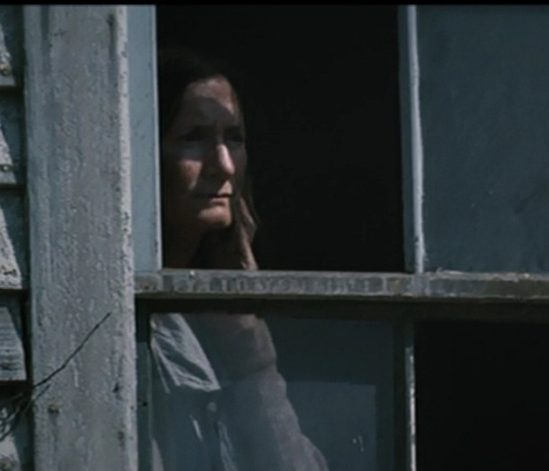Telling the Truth, But Not Quite! The Autobiographical Novel
Today’s guest post is by ghostwriter Barry Fox.
It’s a common problem. You’re eagerly writing the story of your life from beginning to end when suddenly you get to that jerk you’d love to omit—you know, the ex-spouse from hell, maybe the sibling you haven’t spoken to in decades, or some other diabolical character.
You don’t even want to think about this loser, let alone write about him. Why open old wounds? Or you might worry that if you tell the truth about him you’ll hurt others, or maybe get slapped with a lawsuit.
Then there are the embarrassing “What was I thinking?!” moments in your life that you’d like to scrub from your story. Or maybe your life is somewhat convoluted and hard to follow; too many people, places, events, and other things to cover. You’d like to simplify things to make it an easier, more interesting read.
As a ghostwriter, I’ve been faced with this problem more than once. One of my clients requested just “a little adjustment” in her autobiography—meaning she wanted to leave out husbands number two and three. Another client, a man who’d had a lengthy relationship with a business partner, regaled me with stories of what a jerk the partner was—and that was when he was sober. When drunk, the guy could be a real terror. This drunk’s bad behavior seriously affected my client’s business and life, but the client insisted that I totally whitewash this bozo in the book.
All this raises an important question: Is fibbing allowed in autobiographies? The quick and firm answer is no. However, deviating from the truth is expected in the autobiographical novel.
Consider Writing an Autobiographical Novel
An autobiographical novel? That sounds like a contradiction in terms. After all, an autobiography is a purely fact-based presentation of one’s life, whereas a novel is a fictionalized tale that springs from the author’s imagination. Given that an autobiography is supposed to be 100 percent truthful, while a novel is an invention, how can the two possibly intersect?
Writers have long known how to combine truth with fiction to produce works that are factual in essence, even though names were changed, characters were created, certain details were omitted or amended, the storyline was simplified or enhanced to produce a better read, and other alterations were made. These works are considered autobiographical novels.
Think of the autobiographical novel as “veiled fiction.”
Imagine a spectrum, with the truth at one end and fiction at the other.
Strictly speaking, the autobiography falls at the extreme end of the “truth” section. Stripped down to its essence, an autobiography can consist of nothing more than a series of factual statements such as “I was born in Los Angeles in 1966,” or “I graduated from UCLA with a master’s degree in history in 1988,” or “I visited the Louvre museum for the third time in 2011.” While it wouldn’t be terribly interesting to read, it would be a complete and truthful description of the author’s life and, hence, an autobiography.
On the other end of the spectrum is fiction. We’re most familiar with fiction in the form of novels, which might feature completely made-up characters, events, and stories—maybe even superheroes and secret agents, torrid romances, and sweeping sagas of families that rise and fall over generations. Readers understand that works of fiction don’t need to contain a single truthful statement or fact, or a single real person or locale.
What Lies Between
The autobiographical novel, a mixture of truth and fiction, lies somewhere in middle of the spectrum. It’s truthful in the sense that the author remains the protagonist, and most of the other characters are either real or strongly based on real people and what they’ve said and done. And most of the events are presented pretty much as they occurred.
But certain events may be omitted to simplify the storyline. And what was actually said might be tweaked so the reader can get to the point sooner, or understand what’s happening more easily.
Names and other identifying information may be changed to protect the innocent (or the guilty) or to avoid offending someone who might file a lawsuit. When my wife and I worked on the autobiography of a well-known celebrity, we were asked to omit his extramarital activities because of the possibility of a lawsuit.
Characters may be combined to simplify things. One of my clients had a very exciting but confusing life and had interacted with hundreds of people over the course of decades. Keeping track of all of them was nearly impossible, so we combined characters to create a more manageable cast, allowing a few people to stand in for all of the relatives, a few others for the artistic associates, and so on.
Then there are certain fiction writing techniques that may be used, allowing you to sacrifice a bit of truth in order to make the book more interesting or fun. You may, for example, pop back and forth in time, or withhold certain information until the end in order to build suspense.
And, let’s be honest, some autobiographical novel authors may change certain events and dialogue just to make themselves look better or create a better ending. (If I were to write my life story, I’d certainly omit the D I got in handwriting in the fourth grade, along with a bunch of other things I’d rather not mention here. Or anywhere else.)
Should You Write an Autobiographical Novel?
The answer to this depends on your goal.
If you want to stick to the absolute truth, write a “straight” autobiography. Yes, you may end up presenting yourself in a less-than-flattering light, and you may offend certain people. But you will have told your story truthfully.
If, on the other hand, you’re more concerned with “improving” your life story or protecting somebody’s reputation (including your own) by fudging the truth, write an autobiographical novel.
Many excellent and influential books have used this approach. David Copperfield, written by Charles Dickens in 1850, is a disguised retelling of his younger years. James Baldwin’s autobiographic novel Go Tell It on the Mountain recounts his struggle with growing sexual awareness while growing up in a religious and repressive family. Time magazine pronounced it one of the 100 best American novels published between 1923 and 2005. And the best seller My Struggle, by Norwegian author Karl Ove Knausgård, is a series of autobiographical novels translated in over fifteen languages.
Perhaps with a little artful invention your life story could become a wonderful autobiographical novel. You’ll never know until you try!
 Barry Fox is a best-selling author, coauthor, and ghostwriter, specializing in memoirs, business books, and books on politics and art. You can learn about Barry and his wife and sometimes-collaborator, Nadine Taylor, at his website. Read more of Barry’s posts on his LinkedIn page.
Barry Fox is a best-selling author, coauthor, and ghostwriter, specializing in memoirs, business books, and books on politics and art. You can learn about Barry and his wife and sometimes-collaborator, Nadine Taylor, at his website. Read more of Barry’s posts on his LinkedIn page.












I wrestled with this and ended up solving it with a subtitle. Drive, Ride, Repeat: The Mostly-True Account of a Cross-Country Car and Bicycle Adventure.
Hi Al – Using the subtitle to explain that your work is somewhere between full fact and fiction was a great idea. Did you get any response from your readers about your mix of fact and fiction?
Sorry, just saw your question today! No, no one has ever mentioned my straying from the truth, which was pretty minimal.
Hi,
It’s intersting to hear that as a ghostwriter you’ve come across the desire to omit people and events from autographies!
When, as a novelist with two books under my belt, I began writing my life story on my blog, I didn’t expect I’d feel exactly the same half-way through the story. But I did, and ended up turning my life into fiction instead.
I suspect there are thousands of novels that started out as autobiographies, don’t you? My initial novel, The English Heart, became a series of five books. Most of which is pure fiction (honest).
I decided that my story would be more interesting (and less risky, considering I worried my mother would send a hitman after me) to put in novel form, so when I wrote Conundrum, which is 95% autobiography, I was able to pound home my themes better by having the freedom to fictionalize my characters a bit. And, of course, being selective about which events to include and exclude (and make up).
Suzanne, this week you and I had a brief email exchange about my “non-fiction novel” writing project, that I saw my memoir morphing into, quite appropriately.
You didn’t like the sounds of that, at all. Said, in your 30 years of writing work, you’d never heard of such a beast (my paraphrase).
I agreed, the term and the genre has, apparently, fallen out of fashion and use. Still, I LOVED those three words threaded together. They, so appropriately, express the space my project is stretching out o and preparing to fill. All of it’s own accord too (quite surprising to me).
But I ought show some respect to those who know much more than I about genres and niches and categories. So, the “autobiographical novel” was the next term I thought to run by you, for your thoughts. And here I find you’ve featured a post on it.
Non-fiction novel has a far nicer ring to my ears, and seems the perfect descriptor for my emerging project — though my decision isn’t final yet.
But if I have to defer to a different label — one that works effectively for others, this will likely be it. At least it’s a close cousin to my favorite!
A novel is fiction, always, so it can’t be called nonfiction. So, yes, I’d call it a fictional memoir or something like that.
Or. . . an autobiographical novel?
I wrote my autobiography six years ago and self-published it. Not being a well known celebrity outside my colorful radio and TV career, I assume therefore that most people would have little interest in reading about my life. However, I wrote it as though it was a novel. I was painfully honest about drunken adulterous life and yet use humor and a lot of dialog but most of all it had two plot lines and two surprise endings. Now that I am about to publish an audio book version, I am tempted to avoid the autobiography category/description, because I feel that most readers aren’t interested in biographies written by virtual unknown, yet I think it’s a great story…almost like a novel that takes the reader to en ending. So, would it be dishonest to avoid the autobiography / category entirely?
If it’s fictionalized, I would keep it under fiction categories. But if you are keeping to the truthful story and it is your autobiography, I believe it should stay in that category. True, many will only read stories about famous people, but a lot of people love autobiographies that tell of an exciting life.
At 73 and having lived a most colorful life, I really think it would be an exciting story to be told. I worked with a lot of famous people at a well known company. However that would be a small part of a lot of experience.
How do we I began. I’d like to leave a leagacy.
Victoria Matthews
That’s a great question. There are lots of things to consider: what “message” do you want to leave with your readers? Do you have some themes that seem to radiate from your life? Would it be more effective to write a true nonfiction account of your life (autobiography or memoir) rather than a fictionalized version? The challenge with writing a novel is that you have to study and master novel story structure and fiction technique, which can take a long time and a lot of effort. Writing a memoir doesn’t require as much preparation in that regard. You might check out my Memoir Workbook first to see if that’s more to your liking that writing fiction.